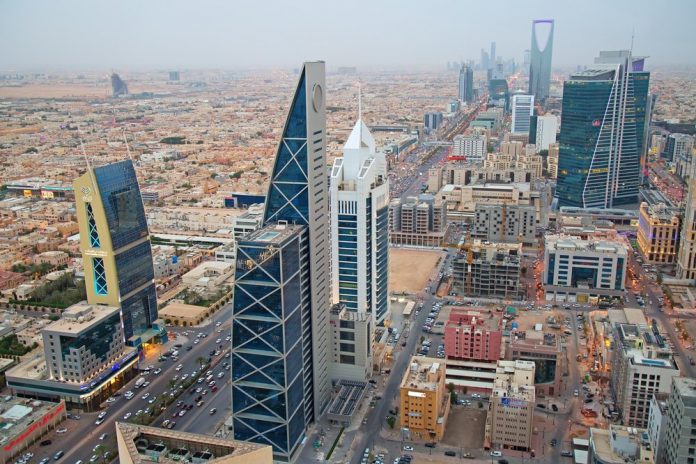DUBAI: Saudi Arabia has accelerated steps to resolve a $22-billion debt dispute that is seen by investors as a litmus test of Crown Prince Mohammed bin Salman’s commitment to reforms, three sources familiar with the matter say.
Legal battles over the debts left by Saad Group and Ahmad Hamad al-Gosaibi & Bros Co (AHAB) have dragged on for almost a decade since the two family conglomerates collapsed in 2009. From Switzerland to the Cayman Islands, the two groups have squabbled over which of them is to blame for the meltdown.
There has been gradual progress in AHAB’s case since 2009, with the company making a settlement offer which has the support of around two-thirds of investors, but there has been much less movement over Saad Group’s debts.
The Saudi authorities signaled their impatience in October, when Saad Group owner Maan al-Sanea was detained for unpaid debt. This spurred efforts by the al-Sanea family to try to resolve the debt dispute, the sources said.
Saad Group took its first big step to engage with creditors last year by hiring a financial consultancy, Reemas Group, to offer a proposed settlement covering $4 billion in debt.
In a further sign of momentum, a three-judge tribunal set up in 2016 to deal with financial claims against AHAB and Saad group has approved creditor claims of about 11.5 billion riyals ($3 billion)against AHAB and appointed liquidators to deal with the unwinding of Saad Group’s business empire, one of the sources said.
Such steps could be vital for the government to win over investors and secure foreign funds for privatization projects under Vision 2030, the plan unveiled by Prince Mohammed in April 2016 to transform Saudi Arabia and reduce its reliance on oil.
“This is a $20 billion-plus problem for Saudi Arabia and unless it’s handled well it will create a long-term legacy issue for some foreign investors,” said one of the people familiar with the matter.
MOUNTAIN OF DEBT
Between them, AHAB and Saad Group owe money to more than 100 international banks including HSBC, BNP Paribas and Citigroup. Saad Group is also in debt to contractors including Germany’s Siemens AG and thousands of staff.
AHAB has said al-Sanea, who married into the al-Gosaibi family more than 30 years ago, defrauded it of billions of dollars after he was put in charge of its financial businesses. He strongly denies wrongdoing.
Saudi Arabia has no insolvency rules though a bankruptcy law is awaiting King Salman’s signature.
AHAB declined to comment for this article, citing the tribunal that is handling its case.
Saudi Arabia’s Royal Court referred a request for comment to the government’s Center for International Communication, which did not respond. The Ministry of Justice also did not respond to a request for comment.
Al-Sanea’s detention was not directly related to the arrests of dozens of senior officials and businessmen in a crackdown on corruption in early November, but the dispute touches on similar investor concerns about graft.
He remains in detention while the last of the people held since early November in Riyadh’s Ritz-Carlton Hotel, which had been used as an interrogation center, have been released or moved elsewhere.
Al-Sanea has been sentenced to five years in jail in absentia in Bahrain for convictions including breaching central bank rules. The sentence has been stayed pending an appeal. Al-Sanea has previously denied any wrongdoing and said the charges were politically motivated.
In a sign that some creditors are now more optimistic there will be a positive outcome to the debt dispute, Saad Group’s debt has been trading up at 3 to 5 cents on the dollar in recent weeks, compared to 1 to 3 cents previously, bankers say.
But some investors remain skeptical. A hedge fund trader who had been considering buying Saudi debt described the attempts by Saad’s advisers to resolve the issue with creditors as a “dog and pony show” and said “very little” work had been done to reach a settlement since November.
Slideshow (2 Images)
Two other sources said Reemas was hoping to push forward in the coming weeks with a proposal to creditors receptive to its plans. Reemas Group did not respond to a request for comment.
STAR ASSET
The star asset in the al-Sanea family’s business empire was the Saad Specialist Hospital in the coastal city of Khobar, one of the country’s top cancer treatment facilities.
It in effect ceased operating in November, saddled with debts and unable to pay wages or contractors, sources familiar with the situation said.
What happens at the hospital is being watched closely by foreign investors as it could set the tone for a government plan to attract overseas investment to the healthcare sector.
A committee set up on the Royal Court’s orders is considering options including bringing in a private company to operate the hospital under the Ministry of Health’s guidance, two of the sources said.
The Ministry of Health did not respond to a request for comment.
One problem to resolve is the wages owed to an estimated 5,000 former staff, dating back to May 2016. It is unclear how many of the former staff, if any, will have jobs when the hospital reopens, possibly in February.
“There are thousands of people affected and a lot of people have families. It is difficult for people to live their lives without this money (wages),” said Talaat Habib, a British pediatrician who worked at the hospital.
Siemens is owed money over a contract to maintain the hospital’s high-tech medical equipment, two sources familiar with the situation said. Siemens declined to comment.




